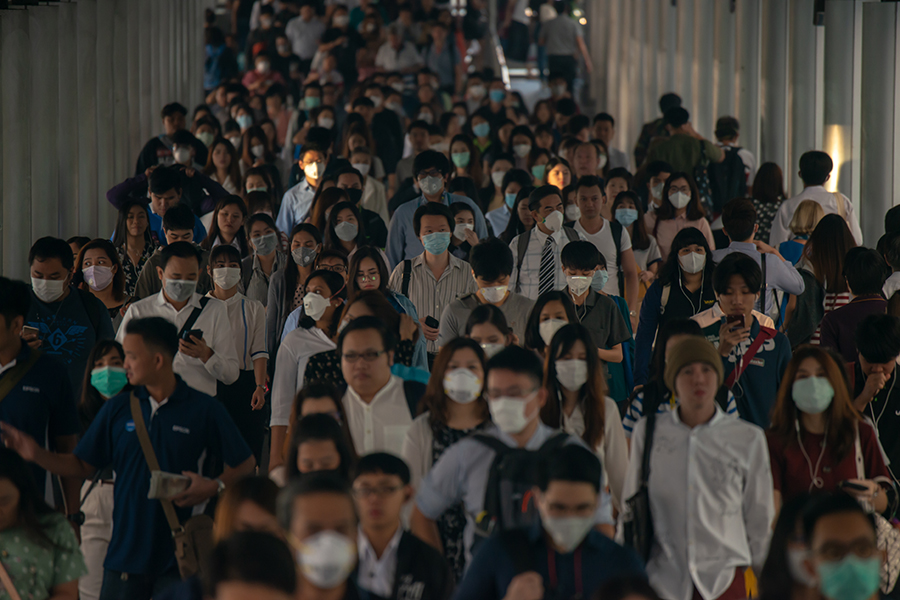Here’s What You Need to Know about the Coronavirus
The virus, which originated in Wuhan China, has killed at least 106 people now and resulted in an airport screening at Logan last night.

Photo via Getty Images
Updated on Tuesday, January 28 at 12:32 p.m..
Stay calm, Boston.
Despite news last night that nine people were evaluated on a plane at Logan Airport for the deadly coronavirus (no one had it), the Massachusetts Department of Public Health says the risk of contracting the disease in the Commonwealth remains low. That’s thanks to continuing efforts of both the DPH and the CDC to keep the virus at bay.
But what exactly is the coronavirus? Here’s everything you need to know about the illness.
What it is and where it came from:
According to the Centers for Disease Control and Prevention, human coronaviruses are common throughout the world. They’re named for the crown-like spikes on their surfaces and develop into four different sub-groupings. The particular strain of coronavirus that is developing currently is a new strain, called 2019-nCoV, and it was identified in Wuhan, China. The first case in the United States was confirmed on January 21 in Washington and a second case was confirmed January 24 in Chicago. Travel in and out of U.S. airports from China is being closely monitored.
How it’s spread:
The virus is only spread from one infected person to another, the CDC states. It can be transmitted in the following ways:
- coughing and sneezing
- touching hands/other body parts
- touching an object or surface that has been contaminated by a person with the virus
- fecal contamination (rarely)
In other words, wash your hands!
The symptoms:
Common types of coronavirus usually only cause mild to moderate upper-respiratory illnesses. So if it feels like a cold, it might still be worth getting yourself checked out. Sometimes symptoms can cause lower-respiratory illnesses like pneumonia or bronchitis. This strain’s common symptoms include fever, cough, and shortness of breath. Symptoms may appear in as little as two days, or as many as 14 days after exposure.
Laboratory testing is the best way to determine if you have coronavirus.
How to prevent infection:
Prevention strategies are pretty rudimentary, including, as stated before, diligent hand washing. Avoid touching your eyes, nose, or mouth, and avoid close contact with people who are sick. And please, if you’re feeling ill, just stay home from work or school.
Treating coronavirus:
There are no vaccines to protect yourself against coronavirus, and there is no specific antiviral treatment for the infection. Patients with the illness usually get better on their own, with the aid of symptom relief medications. In instances of severe cases, treatment should involve a plan to support vital organ functions.
What else you need to know:
Right now, there’s really no need for concern in Massachusetts, unless you’ve traveled to Wuhan, China. In that case, there might be. However, the CDC says this is a rapidly evolving issue and the investigation is ongoing. For updated information specific to Massachusetts, contact the Massachusetts Department of Public Health at 617-983-6800 or follow the updates through the CDC at cdc.gov.


